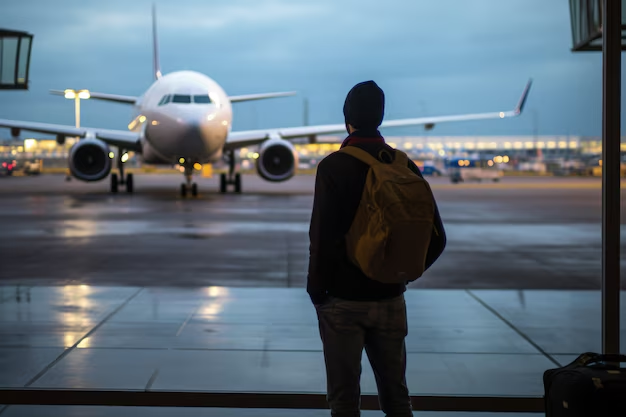Private Indian Airports to Invest Rs 60,000 Crore in Infrastructure by 2027
Private airports in India are poised for a significant infrastructure expansion, with an estimated investment of over Rs 60,000 crore by fiscal 2027, according to a recent report by CRISIL Ratings. This substantial financial commitment is driven by the increasing demand for air travel, with an expected addition of 65 million passengers annually. The investment plan comes at a time when air traffic, both domestic and international, is set to experience steady growth.
The report reveals that this investment will be a 12% increase from the previous period, where private airports committed Rs 53,000 crore between 2022 and 2024. The planned expansion is designed to meet the growing passenger traffic, estimated to rise at a compound annual growth rate (CAGR) of 8-9% between fiscals 2025 and 2027. This surge in demand is anticipated to be primarily driven by business and leisure travel, supported by government efforts to make air travel more accessible to the masses.
Manish Gupta, Senior Director and Deputy Chief Ratings Officer at CRISIL Ratings, highlighted that domestic traffic, which accounts for over 80% of total passenger volume, will play a significant role in this growth. Additionally, the Ude Desh ka Aam Naagrik (UDAN) scheme, which saw the operationalisation of 84 airports and 579 routes as of July 2024, has facilitated greater regional connectivity. These regional airports now serve as crucial feeders to larger metropolitan hubs, further driving growth in the sector.
The revenue projections for private airports during the 2025-2027 period are promising, with a 17% rise expected due to the combined effects of increased passenger traffic, tariff adjustments, and enhanced airport services. Notably, the revenue from aeronautical activities is expected to grow by 24%, while non-aeronautical revenue—such as retail outlets and parking services—should see a 10% increase. This growth will be supported by regulatory tariff increases, with aeronautical charges expected to rise by 15% in the next two fiscal years.
Ankit Hakhu, Director at CRISIL Ratings, noted that while approximately 70% of capital expenditure (capex) will be funded by debt, the credit profiles of private airports will remain robust. This is due to the projected revenue growth, a regulated increase in aeronautical tariffs, and the expansion of non-aeronautical revenue streams. The debt service coverage ratio (DSCR), a key measure of financial health, is expected to improve to 1.45 times, recovering from lower levels during the pandemic years.
Despite the promising outlook, there are potential challenges. The availability of aircraft and geopolitical tensions that could impact fuel costs and passenger volumes remain concerns for the industry. Nevertheless, the overall regulatory environment has become more predictable, which provides greater confidence to investors. The focus on infrastructure development at private airports not only reflects the growing demand for air travel but also underscores the commitment of operators to enhance passenger experience through better facilities, including lounges, parking spaces, and retail outlets. These developments are expected to significantly boost revenues while supporting the country’s economic growth by improving connectivity and accessibility. he investment in airport infrastructure reflects India’s commitment to positioning itself as a leading global aviation hub, catering to a growing number of passengers and fostering a robust aviation ecosystem.


